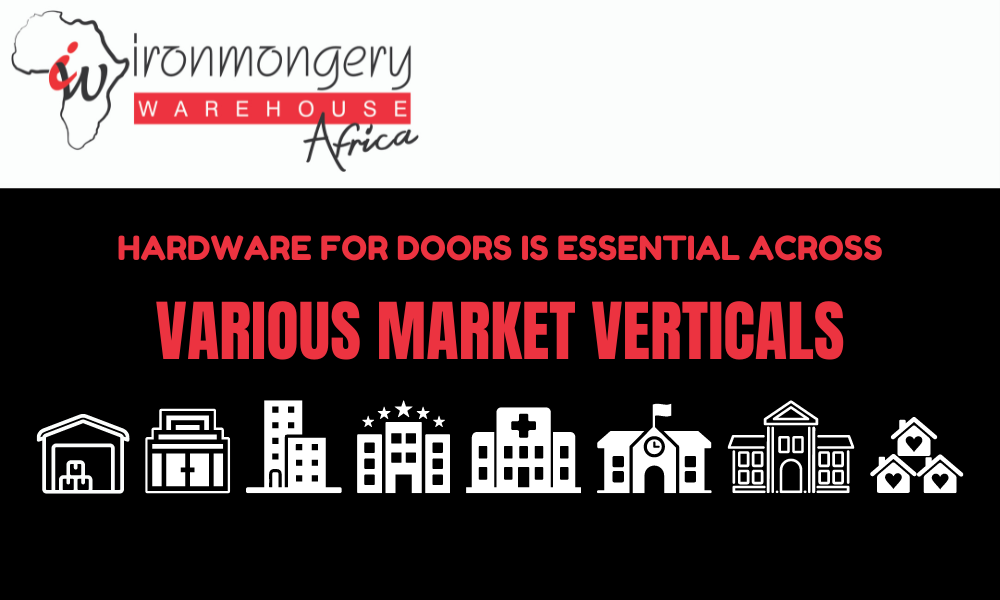
Hardware for doors is essential across various market verticals for several critical reasons:
- Safety and Security: Ensuring the safety and security of occupants and assets is paramount in all types of facilities. Proper door hardware, including locks, hinges, and access control systems, helps control access to different areas, preventing unauthorized entry and enhancing security.
- Regulatory Compliance: Each market vertical is subject to specific regulations and standards governing safety, accessibility, and building codes. Compliance with these regulations is essential to avoid fines, penalties, or legal liabilities. Proper door hardware ensures adherence to relevant standards and regulations, promoting occupant safety and regulatory compliance.
- Efficiency and Flow: Efficient movement of people and goods within a facility is crucial for productivity and customer satisfaction. Door hardware such as automatic door operators, wide openings, and traffic control systems helps streamline flow, minimize congestion, and optimize efficiency, enhancing the overall user experience.
- Accessibility: Creating an inclusive environment that accommodates individuals with disabilities or mobility challenges is essential in all types of facilities. ADA-compliant door hardware, clear signage, and accessible entrance designs ensure that everyone can access and navigate the space comfortably and safely, promoting equal participation and inclusivity.
- Hygiene and Cleanliness: Maintaining hygiene and cleanliness is particularly important in facilities such as hospitals, schools, and hotels to prevent the spread of infections. Door hardware with smooth surfaces, antimicrobial coatings, and easy-to-clean materials helps maintain cleanliness standards and reduce the risk of cross-contamination, contributing to occupant health and well-being.
- Aesthetics and Brand Image: Door hardware can contribute to the overall aesthetics and brand image of a facility. Stylish and well-maintained hardware enhances the appearance of the space and creates a positive first impression for visitors, customers, and occupants. Thoughtfully designed hardware reflects professionalism, care, and attention to detail, reinforcing the facility’s brand image and reputation.
- Durability and Longevity: Facilities require door hardware that can withstand heavy use, harsh environments, and frequent wear and tear. Durable and high-quality hardware components ensure longevity, reducing maintenance costs and downtime while maximizing the lifespan of doors and associated hardware.
- Functionality and Convenience: Door hardware should be designed for ease of use and convenience for occupants. Features such as ergonomic handles, smooth operation, and intuitive controls enhance user experience and satisfaction, contributing to overall comfort and usability of the space.
In summary, hardware for doors is essential across various market verticals for ensuring safety, compliance, efficiency, accessibility, hygiene, aesthetics, durability, and functionality. Investing in the right door hardware is not only a matter of practicality but also a strategic decision that impacts occupant satisfaction, operational efficiency, and brand reputation within these environments.

Click on the links below to read more on Market Vertical ironmongery check lists:
Industrial Warhousing Retail Centres Commercial Offices Hotels Hospitals Schools Student Accomodation residential developmentsContact us today to book a consultation with one of our Ironmongery Specifiers to assist you in finishing your project.
Email us on enquiry@ironware.co.za or call us on 011 444 8677 to speak with one of our Architectural Ironmongery Specification Specialists.
CONTACT US